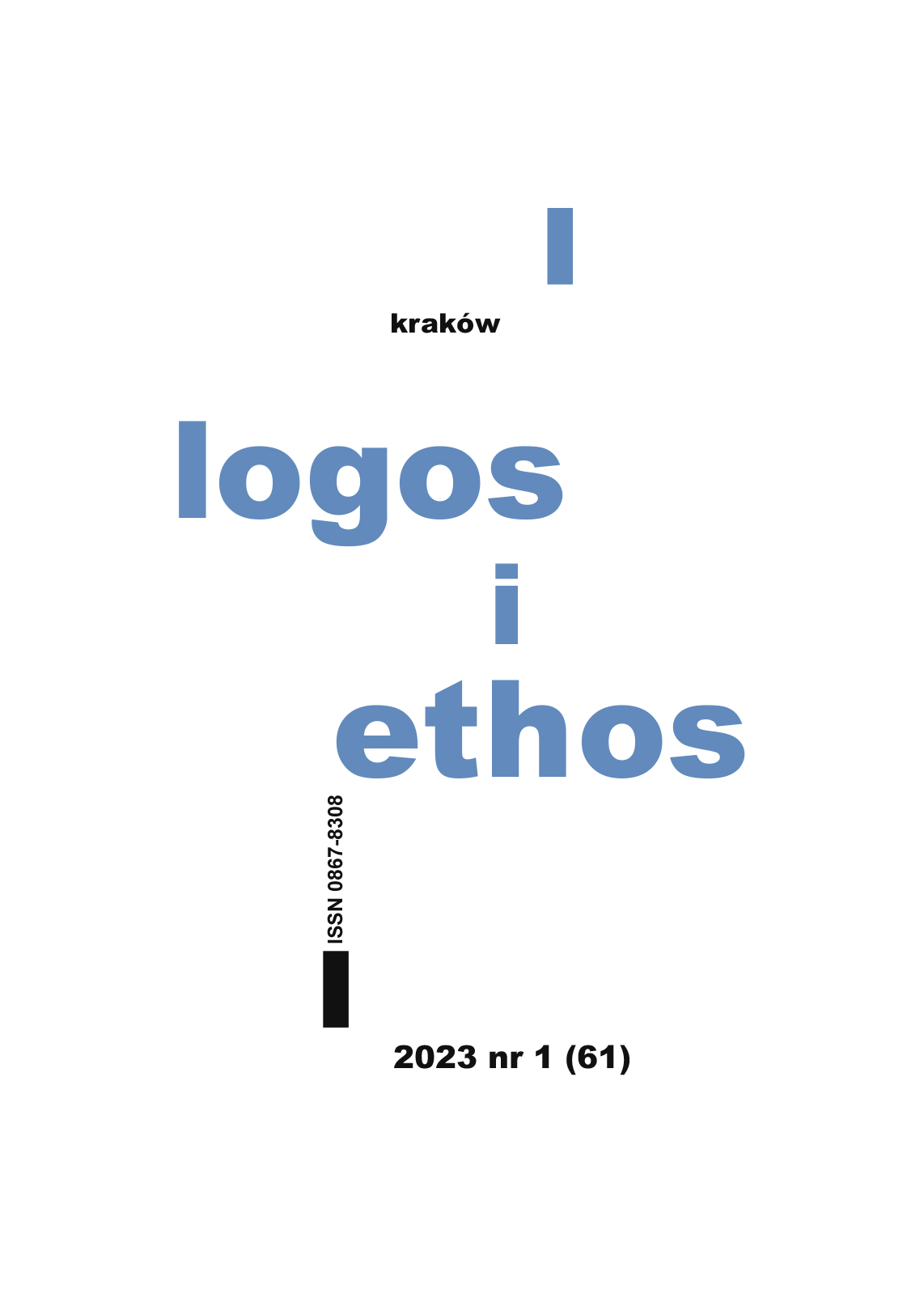Karol Wojtyła’s dispute with Max Scheler over the concept and role of conscience in morality
DOI:
https://doi.org/10.15633/lie.61106Keywords:
Karol Wojtyła, Max Scheler, conscience, value, duty, norm, causality, act, personal fulfilmentAbstract
The article, following Karol Wojtyła’s study of Max Scheler’s ethics in his habilitation dissertation, reveals the above-mentioned phenomenologist’s overly narrow view of ethical experience and, for this reason, a narrow and erroneous account of conscience and its role in morality. Scheler’s narrowing of his analyses of ethical experience down to the emotional experience of values and insight into their essence led, as a consequence, to the exclusion of the causality of the real subject of action, i.e. to the exclusion of the objective desire for good, which is an act of self-determination guided by the fact of moral duty and the categorical normativity of conscience. Scheler equated “wanting good” with “the emotional feeling that I am good”. However, the emotional, passive experiencing of values alone is not the causation and performance of an act. The performance of an act is about good as such, permeated by value and moral duty along with the categorical imperative of conscience. The moral goodness of an act internally permeates the entire dynamism of its performance. The explanation for this kind of personal fulfilment in the act is the potentiality and realization of the nature of the human person. Thus, in the ethical experience, we are dealing not only with the emotional experience of value, but with the experience of moral duty, with the experience of the norm, including the one closest to us, that is, the imperative of conscience, with the involvement of our will towards the performance of a valuable and morally commanded act, as the apex of personal fulfilment.
References
Scheler M., Der Formalismus in der Ethik und die materiale Wertethik. Neuer Versuch der Grundlegung eines ethischen Personalismus, Verlag von Max Niemeyer, Halle 1916.
Wojtyła K., Ocena możliwości zbudowania etyki chrześcijańskiej przy założeniach systemu Maksa Schelera, in: K. Wojtyła, Zagadnienie podmiotu moralności, eds. T. Styczeń, J. W. Gałkowski, A. Rodziński, A. Szostek, Towarzystwo Naukowe Katolickiego Uniwersytetu Lubelskiego, Lublin 1991, p. 11–128 (Źródła i Monografie, 119; Człowiek i Moralność, 2).
Wojtyła K., “Osoba i czyn” oraz inne studia antropologiczne, eds. T. Styczeń, W. Chudy, J. W. Gałkowski, A. Rodziński, A. Szostek, Towarzystwo Naukowe Katolickiego Uniwersytetu Lubelskiego, Lublin 1994.
Wojtyła K., Wykłady lubelskie, eds. T. Styczeń, J. W. Gałkowski, A. Rodziński, A. Szostek, Towarzystwo Naukowe Katolickiego Uniwersytetu Lubelskiego, Lublin 1986 (Źródła i Monografie, 120; Człowiek i Moralność, 3).
Wojtyła K., Zagadnienie woli w analizie aktu etycznego, in: K. Wojtyła, Zagadnienie podmiotu moralności, eds. T. Styczeń, J. W. Gałkowski, A. Rodziński, A. Szostek, Towarzystwo Naukowe Katolickiego Uniwersytetu Lubelskiego, Lublin 1991, p. 181–200 (Źródła i Monografie, 119; Człowiek i Moralność, 2).
Downloads
Published
Issue
Section
License

This work is licensed under a Creative Commons Attribution 4.0 International License.
Authors who publish with this journal agree to the following terms:
- Authors retain the copyright and full publishing rights without restrictions, and grant the journal right of first publication with the work simultaneously licensed under a Creative Commons Attribution 4.0 International License that allows others to share the work with an acknowledgement of the work's authorship and initial publication in this journal.
- Authors are able to enter into separate, additional contractual arrangements for the non-exclusive distribution of the journal's published version of the work (e.g., post it to an institutional repository or publish it in a book), with an acknowledgement of its initial publication in this journal.
- Authors are permitted and encouraged to post their work online (e.g., in institutional repositories or on their website) prior to and during the submission process, as it can lead to productive exchanges, as well as earlier and greater citation of published work (See The Effect of Open Access).

